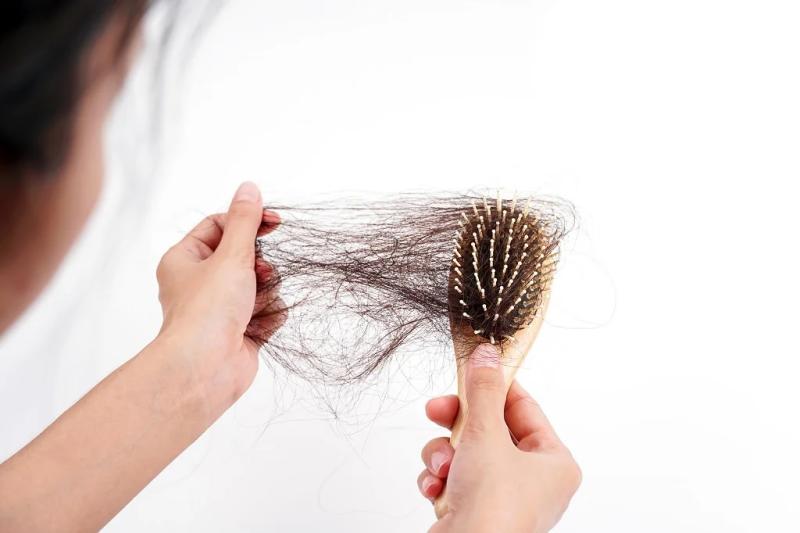Hair Fall Control: Effective Strategies for Healthier Hair

Source: https://www.directhairtransplant.in/hair-fall-control
Hair fall is a common problem in the lives of men and women of all ages and lifestyles. While normal shedding is quite usual, intensive hair loss calls for more than symptomatic treatment, hence comprehensive control over hair fall is the need of the hour. This guide teaches you why and how hair falls and equips you with practical tips to keep hair fall at bay. How and Why Hair Falls
Causes of Hair Fall
The first step toward a proper solution is to know why people lose their hair in the first place. Given below are some of the major causes of hair loss:
1. Hereditary
Genetics have so much to do with whether a person will experience hair loss. The main cause of hereditary hair loss is male and female pattern baldness, which is medically referred to as androgenetic alopecia.
2. Hormonal Imbalance
Hormonal Imbalance Major causes include those that occur in pregnancy, childbirth, menopause, thyroid disorder, and also diseases like polycystic ovary syndrome (PCOS).
3. Nutritional Deficiency
Lack of essential nutrients such as iron, zinc, biotin, and vitamins like D and B12 leads to weak hair, causing easy breakage and shedding. More and more instances of hair loss are caused due to nutritional deficiency but people do not give much heed to it.
4. Stress
Stress, physical or emotional leads to excessive shedding because it induces the telogen, resting phase of hair. It is known as telogen effluvium, which can be transient if treated in the right way.
5. Medical Conditions
Medical conditions are some causes of hair loss. Such medical conditions include alopecia areata and other form of autoimmune diseases. Any form of scalp infections may be the cause of losing hair. Other medical conditions such as diabetes and lupus lead to thinning hair.
6. Hair Styling Practices
Perhaps damage to the hair follicles occurs due to the constant use of hot appliances, hair coloring and dyeing, as well as tight hair styles in the long run. For instance, traction alopecia is caused by hairstyles that cause tension to the hair root ends and results in the weakening of the follicle.
Dietary Modification to Reduce Hair Loss
A well-balanced diet comprising all the right nutrients can help have healthy hair and prevent fall. Appropriate foods consumed by a person will nourish the hair from within the body.
1. Protein Intake
Hair is made up of keratin, which is a protein. In order to strengthen the strands and promote hair growth, enough protein is available within the body through eggs, fish, poultry, and legumes.
2. Increase Your Iron Levels
One of the essential nutrients that help in maintaining proper blood flow in the scalp is iron. Severe deficiency of iron will cause anemia, which directly affects hair growth. So, make sure you include iron-rich food items in your diet, such as spinach, red meat, lentils, and fortified cereals.
3. Take Omega-3 Fatty Acids
It is common knowledge that omega-3 fatty acids help with anti-inflammations and also maintain scalp health. This can be acquired from salmons and mackerels, flaxseeds, and walnuts.
4. Incorporate Food That Contains Zinc and Biotin
Zinc and biotin (vitamin B7) give you the strength for your hair as you grow. Sources of zinc and biotin include nuts, seeds, whole grains, and leafy greens. A lack may contribute to brittle hair and hair loss.
5. Stay hydrated
Dehydration can condition your overall health of the skin and hair. Drinking at least 8-10 glasses of water a day helps maintain a healthy scalp that prevents dryness which leads to hair fall.
Natural Remedies for Hair Fall Control
For those who aim for a natural way of controlling their hair fall, you should check on these home remedies that help in the reduction of shedding and promotion of healthier hair.
1. Coconut Oil
It is rich in fatty acids and vitamins, which penetrate the hair shaft directly. The hair shaft loses less protein and is therefore nourished. Application of coconut oil on your scalp a few times a week helps to promote hair growth and reduce breakage.
2. Aloe Vera
Aloe vera is a coolant and healer. This helps in regulating pH in your scalp and decreases the incidence of dandruff, which leads to hair loss. Fresh aloe vera gel applied on the scalp will soothe irritation and improve the health of the scalp.
3. Onion Juice
Onions have been one of the popular home remedies for hair growth. Sulfur increases the production of collagen and has an effect of improving the blood flow towards the scalp. Onion juice should be applied to the scalp, left on for 30 minutes, and then washed off with a gentle shampoo.
4. Green Tea Rinse
Green tea comprises antioxidants that are good for preventing hair loss and inducing hair growth. Steep a cup, allow it to cool down, and use it as a final rinse after shampooing to reduce further hair shedding to improve scalp health.
5. Fenugreek Seeds
Fenugreek seeds hold lots of proteins and nicotinic acid, thus building strength in hair shafts and stimulation of growth. Soak a tablespoon of fenugreek seeds overnight, grind them into the paste and apply that to your scalp for 30 minutes before wash.
Effective Treatments for Hair Loss
While trying natural remedies and dietary changes, if you still don't see a difference, then various professional treatments will help with hair fall control. Consultation with a dermatologist or trichologist may help you decide what is the best treatment for your case.
1. Minoxidil
Minoxidil is a topical medication of the FDA for hair loss. It stimulates the hair follicles through increase blood flow towards the scalp by manganese. This over-the-counter medication can also treat male and female pattern baldness and it's used on both men and women to prevent conditions.
2. Hair Transplant Surgery
Advanced cases of hair loss may be treated through hair transplant surgery. The principle is based on taking hair follicles from one area and transplanting them to those affected by thinning or complete loss, usually from the back of the head.
3. Platelet-Rich Plasma Therapy
Essentially, PRP therapy simply requires drawing a tiny amount of blood and processing it to concentrate platelets, then the drug is injected into your scalp. This has been controversially reported to be one of the therapies for promoting hair growth by enhancing the supply of blood to the hair follicles and also by promoting cell renewal.
4. Laser Therapy
LLLT is a low-level laser therapy which involves the application of red light on the hair follicles to enhance density. The procedure isn't invasive and can be carried out either in a clinic setting or through home-based laser machines.
Hair Care Tips to Avoid Breakage
Proper hair care is one of the easiest ways to prevent hair loss resulting from breakage. To reduce hair damage and ensure your hair remains strong and healthy, go through the following tips.
1. Gentle Shampoo
Using a mild sulfate-free shampoo will avoid drying and irritation of the scalp. Avoid using shampoos that contain abrasive chemicals which otherwise remove natural oils from the hair.
2. Conditioning
A good conditioner maintains moisture and smoothness on the hair shaft to avoid breaking hair. While conditioning, remember not to weigh your hair roots down by massaging deep towards them. Concentrate on the ends.
3. Avoid heat styling
Heated styling products such as straighteners and curling irons are some heat styling products that weaken your hair and break off. The hair should be allowed to air-dry, thus avoiding heated styling tools.
4. Be Gentle When Brushing
Brush your hair roughly is likely to break them. Wet hair should be combed out using a wide-tooth comb, beginning from the ends upwards to the roots.
5. Protect the Hair at Night
Cotton pillow cases cause friction that can break hair. Change your pillow to a silk or satin pillow case that reduces friction so that while you're sleeping, it keeps your hair smooth and silky with no tangles.
Changes in Lifestyle to Keep Hair Healthy
Lifestyle issues also seem to be very much associated with the health of hair. Small changes to your lifestyle today will do wonders in preventing hair falls and promoting hair growth.
1. Stress Control
Major reasons for hair loss are chronic stress. The stress level can be controlled either through yoga or meditation or deep breathing exercises so that the person does not lose his hair due to stress.
2. Exercise Often
Exercise enhances blood flow, which will work to the good of your scalp since it will address your hair roots' nutritional needs. This way, you can ensure you regularly exercise for at least 30 minutes of a moderate-intensity aerobic activity most days of the week for overall good health and that of your hair.
3. Sleep Sufficiently
Hormonal Imbalance: A sleeping disorder can cause hormonal imbalances. While their effects may be subtle, hormonal imbalances may lead to hair thinning and shedding. So, get your night-time sleep right- at least 7-9 hours of good quality sleep in a night-to enable your body to execute all the regeneration processes, such as hair growth.
4. Cessation of Smoking and Alcohol Intake
It deprives the hair follicles of the oxygen and nutrients that they need to grow and thrive because of the restricted flow of blood to the scalp. Similarly, liquor drinking deprives them of essential nutrients necessary for hair health. Quitting or stopping your smoking and drinking will make you notice some changes in your hair.
Conclusion
Hair fall can be controlled and can be done through the improvement of diets, treatments, some natural remedies that are available, and good hair care habits. Understanding what causes hair fall and then taking proactive measures toward correcting these causes can keep your hair healthy, strong, and even healthy-looking. Whether you











Comments